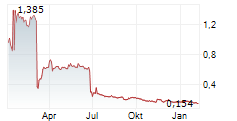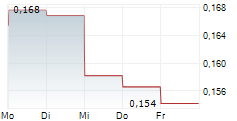GOTHENBURG, SE / ACCESS Newswire / May 28, 2025 / IRLAB Therapeutics (STO:IRLAB-A)(FRA:6IRA) - Gothenburg, Sweden, May 28, 2025 - IRLAB Therapeutics AB (Nasdaq Stockholm:IRLAB A), a company that discovers and develops new treatments for Parkinson's disease, today announces the company has successfully completed the second and final part of its clinical Phase I study, in which the drug candidate IRL757, being developed for the treatment of apathy, was administered in multiple ascending doses (MAD). The results show that IRL757 is well absorbed and provides good exposure in the body following ten days of dosing. All participants completed the study, and no serious adverse events were recorded. The safety, tolerability and pharmacokinetic profile of IRL757 support continued clinical development.
"We are very pleased that IRL757 is well absorbed and provides good exposure in the body while demonstrating excellent tolerability and a favorable safety profile. These results give us a strong foundation for the continued clinical development of the drug candidate, which has the potential to treat and counteract apathy in millions of patients with neurodegenerative diseases," says Dr. Joakim Tedroff, MD, Chief Medical Officer at IRLAB.
The Phase I study has been funded by The Michael J. Fox Foundation for Parkinson's Research (MJFF) through a grant of just over SEK 20 million. MJFF is the world's largest non-profit funder of Parkinson's disease research, and the organization's support for IRL757 means a strong external validation of the project's goals and potential.
Based on the positive results from the completed Phase I studies, a clinical Phase Ib study in Parkinson's disease and apathy has been initiated in cooperation with The McQuade Center for Strategic Research and Development (MSRD), a member of the global Otsuka family of pharmaceutical companies. The first patients are expected to be enrolled in the study in the second half of 2025. IRLAB and MSRD formed a collaboration in May 2024 to advance IRL757 through proof-of-concept trials as a potential treatment of apathy.
Apathy is characterized by indifference, resignation and a lack of response to what is happening in the outside world. The condition often leads to significant disability and caregiver distress, affecting a substantial proportion of people living with Parkinson's, Alzheimer's and other diseases related to the central nervous system. Currently, there are no drugs on the market to treat apathy. IRLAB's drug candidate IRL757 has shown positive effects in several preclinical models of cognitive function, including improved motivation. This effect is believed to be associated with the drug candidate's unique ability to counteract disturbances in central nervous system nerve signaling proposed to underly apathy in several neurological conditions.
Om Fas I-studien
The Phase I study consists of two parts and aims to document the safety, tolerability and pharmacokinetic properties of IRL757 in healthy subjects. In the first part of the study, single ascending doses of the drug candidate are administered (SAD) and in the second part, multiple ascending doses are given (MAD). In addition, the possible influence of concomitant food intake will be documented.
For more information
Kristina Torfgård, CEO
Phone: +46 730 60 70 99
E-mail: kristina.torfgard@irlab.se
About IRL757
The drug candidate IRL757 is being developed as a treatment for apathy in Parkinson's disease and other neurological conditions. Apathy, a widespread and debilitating issue, affects over 20 million people in the U.S. and Europe alone without a currently available treatment. The prevalence is high, occurring in 1.1-4 million people (20-70 percent) being treated with Parkinson's in the eight major markets (China, EU5, Japan, and the US), and in 4.9-6.7 million people (43-59 percent) being treated for Alzheimer's disease in the ten major markets (Canada, China, EU5, Japan, South Korea, and the US).
IRL757 has the potential to become the first treatment for apathy. The efficacy of IRL757 is thought to be linked to its unique ability to reverse disruption in cortical to sub-cortical nerve signalling, a key factor believed to contribute to apathy in neurological disorders.
About IRLAB
IRLAB discovers and develops a portfolio of transformative treatments for all stages of Parkinson's disease. The company originates from Nobel Laureate Prof Arvid Carlsson's research group and the discovery of a link between brain neurotransmitter disorders and brain diseases. Mesdopetam (IRL790), under development for treating levodopa-induced dyskinesias, has completed Phase IIb and is in preparation for Phase III. Pirepemat (IRL752), currently in Phase IIb, is being evaluated for its effect on balance and fall frequency in Parkinson's disease. IRL757, a compound being developed for the treatment of apathy in neurodegenerative disorders, is in Phase I. In addition, the company is developing two preclinical programs, IRL942 and IRL1117, towards Phase I studies. IRLAB's pipeline has been generated by the company's proprietary systems biology-based research platform Integrative Screening Process (ISP). Headquartered in Sweden, IRLAB is listed on Nasdaq Stockholm (IRLAB A). For more information, please visit www.irlab.se .
Attachments
IRLAB reports positive results from the second part of a Phase I study with IRL757
SOURCE: IRLAB Therapeutics
View the original press release on ACCESS Newswire:
https://www.accessnewswire.com/newsroom/en/healthcare-and-pharmaceutical/irlab-reports-positive-results-from-the-second-part-of-a-phase-i-stud-1032605



